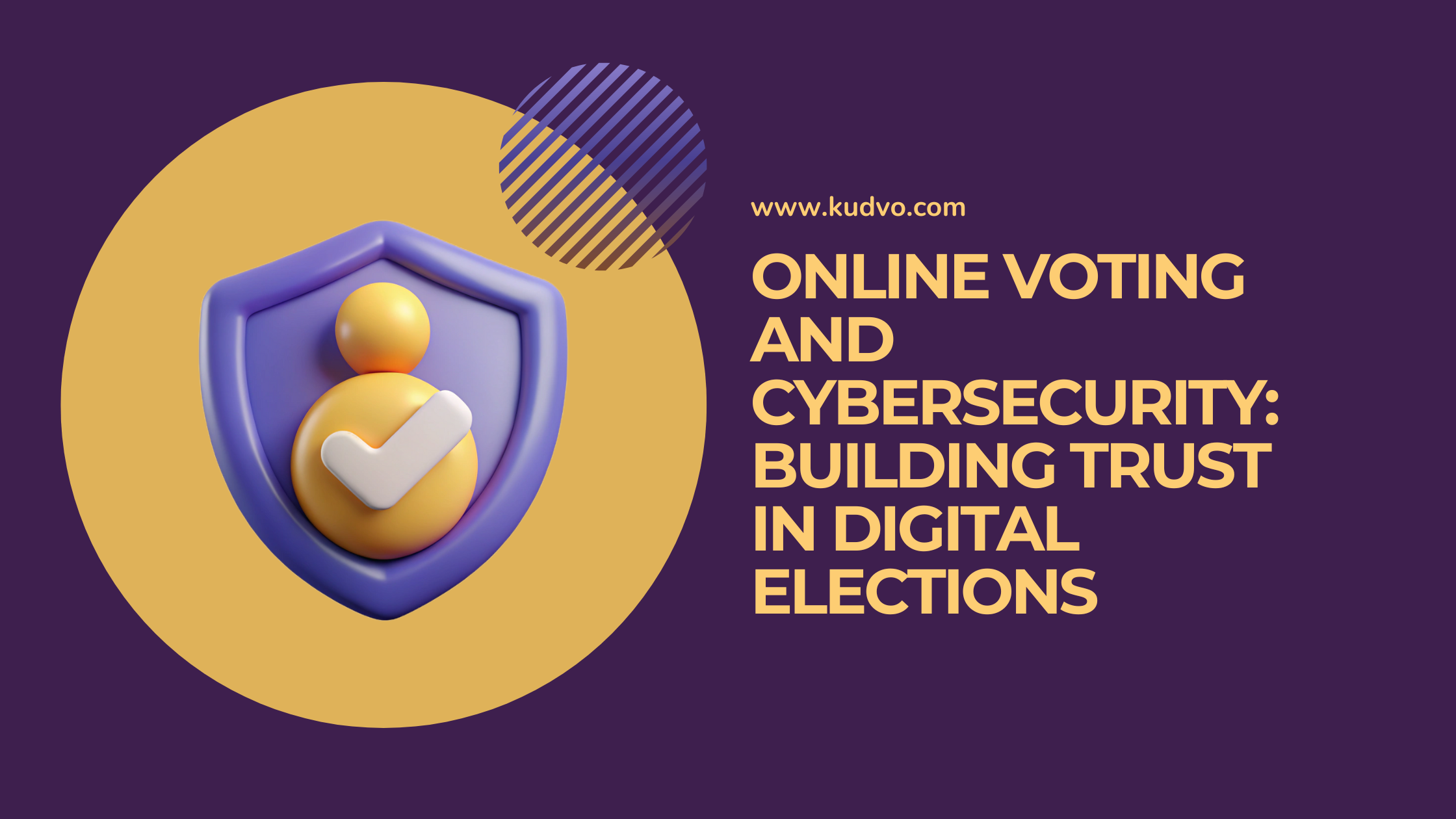Online Voting and Cybersecurity: Building Trust in Digital Elections
Introduction
Can we trust online voting to protect our democracy?
As more organizations, governments, and communities shift to digital elections, concerns around cybersecurity are rising. How can voters be sure their vote is counted correctly—or even kept private—when it’s cast over the internet?
This blog post explores the crucial connection between online voting and cybersecurity, and what it takes to build trust in digital election systems. Whether you're a decision-maker planning an online vote or just curious about the technology behind it, you’ll gain clear insights into the best practices that protect the digital ballot box.
Tip: Looking for a platform that prioritizes security? Kudvo is a trusted e-voting solution built with end-to-end security in mind.
1. Why Cybersecurity Is Critical for Online Voting
Online voting opens the door to convenience and accessibility—but it also introduces new risks. Cyberattacks like data breaches, DDoS attacks, or vote tampering can shake public confidence in the outcome.
Here’s what’s at stake without strong cybersecurity:
Voter privacy breaches – Leaking who voted for whom.
Vote manipulation – Altering or deleting votes.
Election disruption – System crashes during peak hours.
Misinformation spread – Hackers creating chaos with fake results.
Real-world example: In 2019, Switzerland’s online voting system faced a white-hat hack test. Ethical hackers discovered critical vulnerabilities, proving that even advanced systems need constant updates and audits.
2. Key Cybersecurity Measures That Build Trust
To protect digital elections, a secure e-voting platform should integrate multiple layers of defense:
✅ End-to-End Encryption (E2EE)
Ensures that votes are encrypted from the moment they’re cast until they’re counted—preventing interception or tampering.
✅ Multi-Factor Authentication (MFA)
Confirms each voter’s identity using something they know (password), something they have (device), or something they are (biometrics).
✅ Secure Server Infrastructure
Includes load balancing, data backups, and real-time monitoring to defend against DDoS attacks and server crashes.
✅ Regular Security Audits
Third-party assessments help detect and fix vulnerabilities before bad actors find them.
✅ Voter-Verifiable Receipts
Let voters confirm that their vote was recorded as cast, without revealing the content of the vote.
3. The Role of Transparency and Public Oversight
Cybersecurity isn't just technical—it's also about perception. If voters believe the system is insecure, trust erodes—even if the platform is well-protected.
To increase public trust:
Use open-source technology or share cryptographic protocols to allow independent verification.
Allow third-party audits and publish findings transparently.
Educate voters on how their votes are protected, and what the platform does to prevent fraud.
Case Study: Estonia, a pioneer in national online voting, publicly discloses its system architecture and cryptographic principles—boosting trust through transparency.
4. What to Look for in a Cybersecure E-Voting Platform
When choosing an e-voting solution, cybersecurity should never be an afterthought. Here are non-negotiable features you should demand:
Data encryption at all stages (casting, transmission, storage).
Tamper-evident logs that make manipulation detectable.
Redundancy and disaster recovery plans in case of server failure.
Real-time monitoring for unusual activity.
Compliance with global standards like ISO/IEC 27001 or GDPR.
Pro tip: Always ask vendors for a security white paper or audit history before committing.
Conclusion
Cybersecurity is the foundation of trust in online voting. Without it, even the most innovative digital election tools can fall short. But with the right mix of technology, transparency, and education, online voting can be just as secure—if not more—than traditional methods.
Here’s a quick recap of what we covered:
Cyber threats to digital elections are real, but preventable.
Encryption, authentication, and auditability are key safeguards.
Trust is built not only through security but also through openness.
Choose a platform that prioritizes security from the ground up.
Want peace of mind for your next digital vote? Kudvo offers a fully encrypted, audit-ready, and user-friendly e-voting platform trusted by organizations worldwide.
